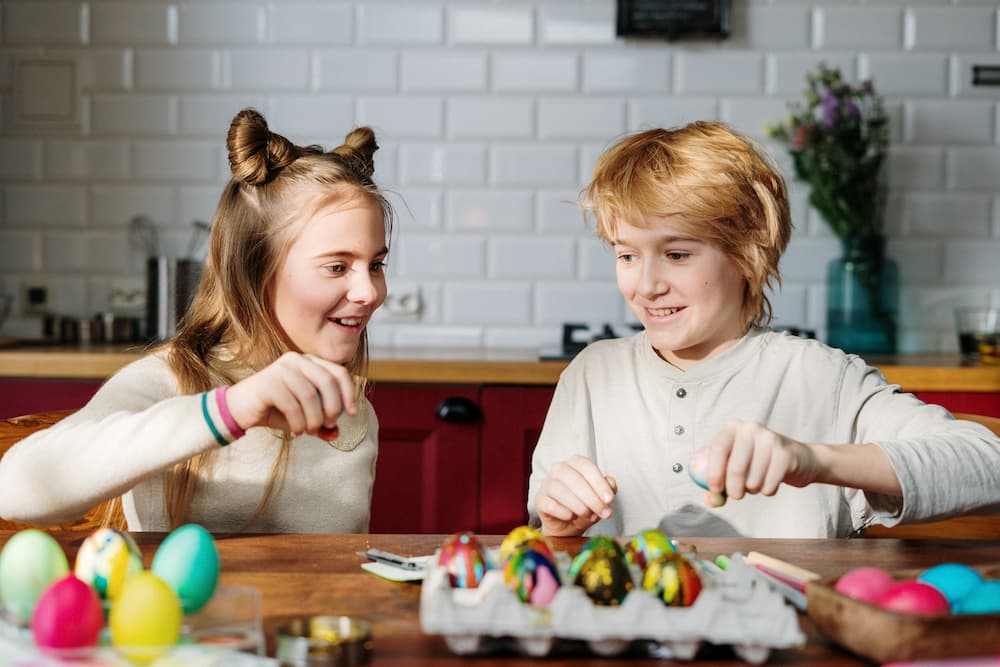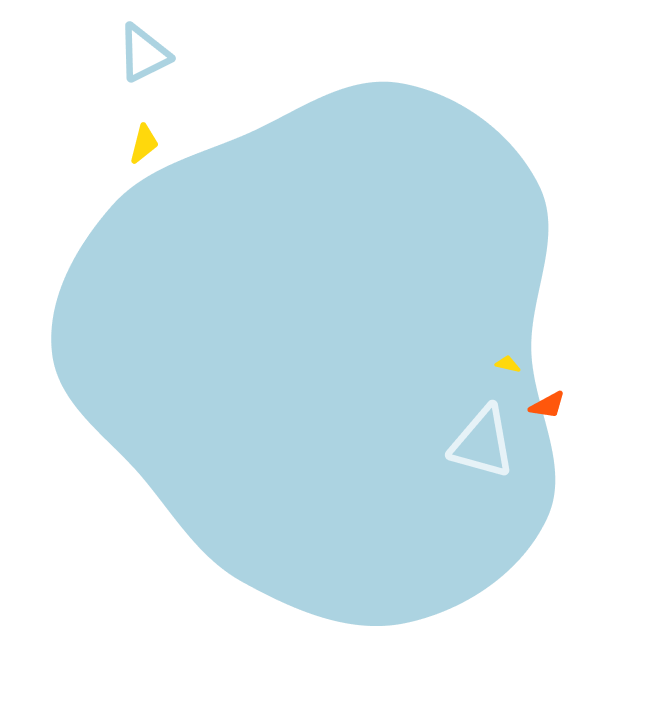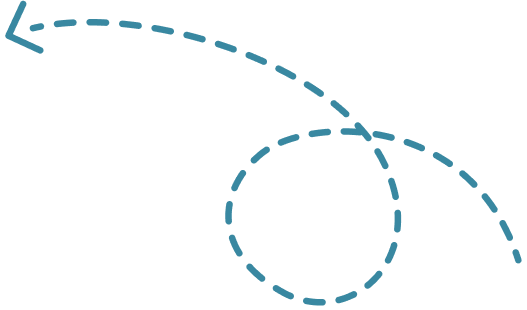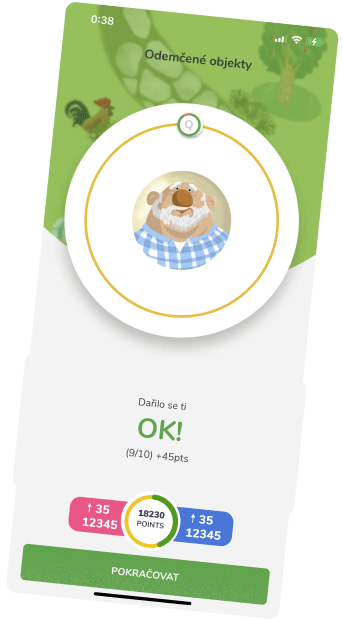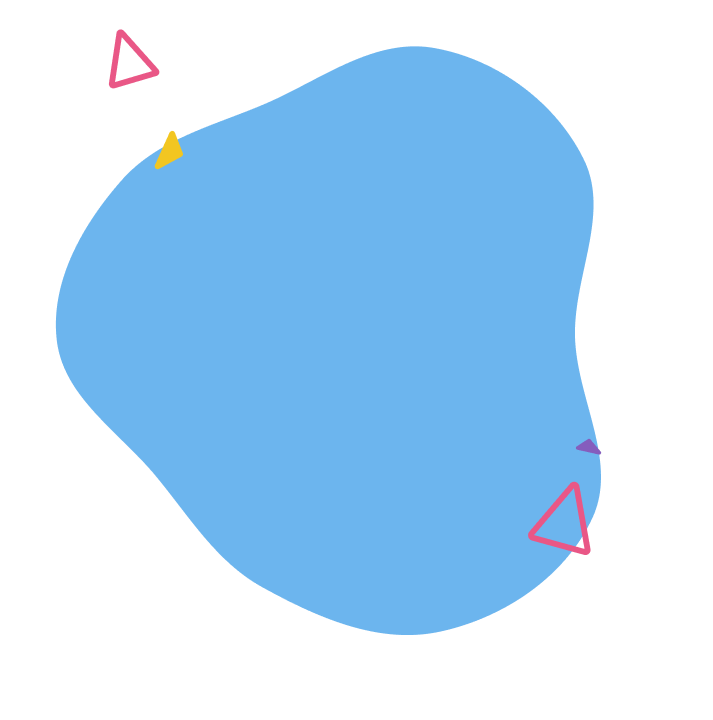Learning French at Easter: Flying Bells, Giant Omelets, and More
By Lilia Ahmed Ali
Are the French more into chocolate eggs or Easter bells? This year, Easter or Pâques was celebrated on April 09, 2023. In France, Pâques is the most important Christian event that gathers adults and children around the same table to enjoy each other’s company while tasting some good food! It brings joy and cheer to the whole family.
The customs and traditions for this celebration differ from one region to another. French Easter traditions are overflowing with scrumptious chocolate, magical bells, colorful eggs, rabbits and a cooked lamb!
In today's article, discover the fascinating ways Pâques is celebrated in France
and take a closer look at some of their traditions that will leave you longing to experience it for yourself.
Plus, you will learn some vocabulary and expressions to use with your French buddies. Here we go!
Easter, a symbol of spring, renewal and religion!
Easter is a beloved pastime and opportunity for families to meet and share some delicious home cooked meals and heartwarming moments. While some French people may consider Easter a very important religious event, for others it marks the beginning of spring and a chance to revitalize and refocus the spirit and soul!
French Vocabulary and Phrase
Before we dive in, here are some French vocabulary and expressions to use on your trips to France when it coincides with the Easter season or when you want to wish your French friends a happy Easter!
Les lapins de Pâques: Easter bunnies.
Les arbres de Pâques: Easter trees.
Les cloches de Pâques: Easter bells.
Les œufs de Pâques: Easter eggs.
La chasse aux œufs: Eggs hunt.
Nid de Pâques: Easter nest
L'omelette géante de Pâques: The Giant Easter Omelet
L’agneau de Pâques: Easter lamb.
To wish a happy Easter in French, simply say: Joyeuses Pâques! or Bonnes fêtes de Pâques!
Traditions besides Easter eggs, bunnies, bells
Traditions are quite different in each region. In Alsace for example, as you explore the vibrant streets, les lapins de Pâques (Easter bunnies) and les arbres de Pâques (Easter trees) are the most prominent, while in other regions, les cloches de Pâques (Easter bells) and œufs de Pâques (Easter eggs) are all around you.
Out on the streets, you’ll discover exciting Easter traditions!
Le lapin de Pâques
The Easter Bunny is a well known tradition in the north of the country.
Parents may choose to make their own adorable chocolate Easter bunnies at home with their kids, which can unleash their creativity, or they can simply be bought from local stores and supermarkets.
Les lapins de Pâques can be placed all around the garden; home or in Easter trees (arbre de Pâques). The Easter tree, also called a spring tree, is another tradition commonly known in Alsace. The trees can be beautifully decorated with eggs, bells and fresh flowers to create the Easter spring mood.
L’œufs de Pâques
Colorful chocolate Easter eggs or œufs de Pâques are a classic Easter tradition in France. They are a lovely gift for kids and adults to celebrate this festive season.
Eggs give way to another thrilling tradition called "la chasse aux œufs" (egg hunt). Parents would hide these chocolate-shaped eggs all around the garden for the children to find. All the kids like this tradition and are very excited to go on an egg hunt on Easter morning.
But, who brings these treats to the children? Well, while Easter eggs are a common tradition in many regions in the world, the way they are delivered in our gardens and houses is not the same. Especially in France!
While in countries like Sweden, USA and UK it is the Easter bunny who hides the gifts for children to find on Easter morning, in Australia it is the Easter bilby.
In France, Chocolat eggs are magically delivered by …Flying Easter bells i.e les cloches de Pâques!
Flying Easter belles? Les cloches de Pâques?
The legend goes that the Easter bells carry the egg-shaped chocolates as they fly back from Rome and distribute them on Easter morning.
From Thursday to Saturday of Holy Week, the church bells in France stop ringing (in remembrance of the death of Jesus), but they are heard again on Sunday Easter Day!
In Alsace and Metz for example, the tradition says the rabbit brings the eggs and other chocolates figures whereas in eastern France, it’s the magic flying bells.
How does this happen? It is quite funny. Someone would yell "les cloches sont passées" i.e the bells are over, and all the kids rush around their house to pick up their sweet treats.
L’agneau de Pâques
Besides the different shaped chocolates, the main dish in the French Easter menu includes lamb, served with fresh seasonal vegetables and greens. It is a familiar tradition for Easter dinner.
Have you ever heard of Agneau Pascal or Lammele? It is a kind of brioche or a cake in the form of a lamb, dusted with powdered sugar that is served for Easter breakfast, which is very popular in Alsace, Metz and some eastern regions of France.
The Giant Easter Omelet
On Mondays after Easter, families in southwestern France, like Bordeaux, Toulouse and Bessières, gather to prepare a giant omelet out of thousands of crushed eggs.
The whole village is invited to join the celebration and enjoy a delicious giant omelet, all surrounded by animations and dances. It is a long-standing tradition that has been around for decades.
There’s more besides lamb …
As stated earlier, lamb is the main dish at Easter in France. It is cooked either roasted, stuffed, simmered, or sweet and savory, and is accompanied by asparagus, peas, green or white beans. It's up to you if you plan to cook an Easter meal the French way.
For dessert, French people love to prepare some kind of brioche with orange blossom or sweet bread with aniseed flavor.
There is also a very traditional Nid de Pâques or Easter nest that is always on the Easter tables! It is a kind of sponge cake in the shape of a nest with a sweet or salty taste.
In Martinique, on the other hand, Easter's main culinary specialties are crab and accras!
There, the locals enjoy a family meal that includes the traditional crab matoutou.
As for the accras, it’s like a tasty doughnut made of fish, vegetables and aromatic herbs and spices.
Gifts? Only sometimes …
You may ask if French people used to offer each other gifts during Easter? Well, in Alsace it is a common habit, but not necessarily in the other regions. The most important thing is to spend a good time and create lasting memories together. However, if you don’t want to arrive empty-handed, bring some chocolate boxes that everyone will certainly appreciate and games for the kids.
How do French people spend their Easter holidays?
Some families in France still observe Easter by participating in Sunday church services.
Since it marks the beginning of spring and the vacations, families like to meet each other and eat outdoors under the warmth of the sun.
In Martinique, for example, families have lunch on the beach or go hiking with friends!
And you, how do you spend Easter in your country?







